Last Updated on October 12, 2021

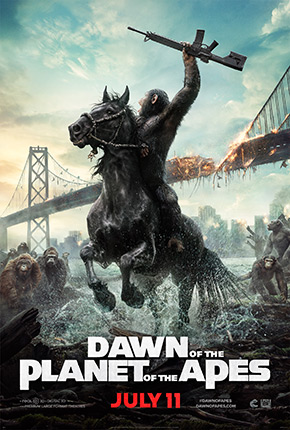
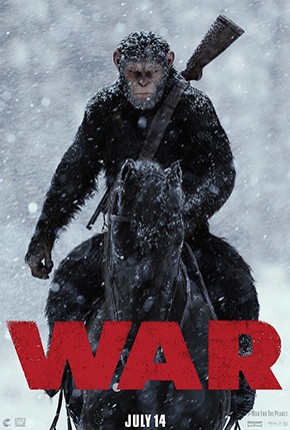
Nice to see you again, fans of the cinema! This is the Face-Off, where two movies enter and both movies leave, but one leaves in a slightly better light. Yes, here we take two competitors and compare their key elements and see who comes out the champion. It's a fierce competition that results in blood, tears, and online arguments, but the more brutal the battle, the sweeter the victory.
Between AVENGERS: ENDGAME, GAME OF THRONES and now the third JOHN WICK movie there's a lot of punchy conclusions hitting pop culture like a ton of emotionally gripping, visually-arresting bricks. Because of this, there's a tendency for people to look back on some of the best series of both modern movies and TV, many of which have influenced pop culture in many ways. With that in mind, no conversation on this subject is complete with digging into one of the greatest movie trilogies of the 21st century, and with this Face-Off, we will be examining the latter two entries in the said trilogy: It's DAWN OF THE PLANET OF THE APES vs. WAR FOR THE PLANET OF THE APES.
After RISE OF THE PLANET OF THE APES surprised everyone by bringing the classic series into the modern world in rousing fashion, the sequels had the tough task of living up to that start and increasing the smarts and visuals along the way. Both movies did so triumphantly, with DAWN elevating everything from the smarts to the action, and WAR delivering a gripping character-driven final outing that solidified it as one of the best trilogies perhaps of all time.
These are both exceptional movies from top to bottom, but which one stands tallest from the highest branch? Quit monkeying around and scroll down to find out.
Andy Serkis as Caesar
Toby Kebbell as Koba
Jason Clarke as Malcolm
Gary Oldman as Dreyfus
Keri Russell as Ellie
Judy Greer as Cornelia
Terry Notary as Rocket
Karin Konoval as Maurice
Nick Thurston as Blue Eyes
Kodi Smit-McPhee as Alexander
Kirk Acevedo as Carver
Andy Serkis as Caesar
Woody Harrelson as The Colonel
Steve Zahn as Bad Ape
Judy Greer as Cornelia
Terry Notary as Rocket
Karin Konoval as Maurice
Ty Olsson as Red
Michael Adamthwaite as Luca
Sara Canning as Lake
Amiah Miller as Nova
Aleks Paunovic as Winter
and Toby Kebbell as Koba
Rupert Wyatt did a great job setting up this prequel series with RISE OF THE PLANET OF THE APES, adding a stylish layer of depth that didn’t skimp on the action either. But after having to leave the sequel CLOVERFIELD and LET ME IN director Matt Reeves was brought in and put his own glorious, thematic stamp on the series. Right out of the gate you can tell this movie is operating on a whole other level than RISE, as the intro showing the virus’ decimation via news coverage smash cuts to the apes in the trees – just waiting. The following scene plays out like something akin to 2001: A SPACE ODYSSEY, as the mostly wordless apes descend on the elk as a haunting, echo-y score gives the scene a rich, atmospheric intensity. It was the perfect tone to set going into this whole new world where apes are living in their own, evolving commune. This level of vision Reeves keeps consistent throughout the whole movie, putting sheer dramatic scope and intellect first and visual flair second – but not a distant second – as the visuals are immaculately incorporated into the real world beyond what the first was able to do. But what made Reeves such a perfect candidate for DAWN is that he has a knack for looking at well-worn genres (CLOVERFIELD, found footage horror) or pre-existing material (LET ME IN, a remake) and making it feel fresh and totally his own. With this sequel he did a brilliant job keeping the focus on Caesar and showing his growth as a leader in a desperate time, establishing a tone and hierarchy in the ape community that made it feel alive and vibrant with our central ape the clear alpha. With few words spoken between the characters he got out so much drama thanks to impressive staging work and pushing the use of visuals to their most meaningful effect (a stand out when Koba brings Blue Eyes to his cause as their home burns around them). The themes are profound, and Reeves ensures characters like Caesar and Koba are at the forefront of those issues, keeping their actions and motivations front and center.
Luckily, Reeves was brought back on for the sequel, and what he did was nothing short of miraculous. The title would suggest this third outing could’ve descended into the brand of finale, cataclysmic spectacle we’ve come to expect from big-budget conclusions, but Reeves took things in a different way. The movie has less action than the previous movie, and instead, he went for a more character-driven humanity play about the nature of being human in a world where everything was crumbling. That’s where the “War” comes from in the title; the war for the very soul of humanity itself, and who will be the ones to carry it on – mankind or apes. Not quite the most exciting area to tackle for a summer blockbuster, but Reeves deserves far more praise than audiences gave him for his work here because it is a masterclass in big-budget filmmaking on par with MAD MAX: FURY ROAD and THE DARK KNIGHT. Not only is the character work gripping, with Caesar and the villain, The Colonel, painted as biblical figures fighting to protect the souls of masses who look up to them (one as a humble god figure of sorts, the other as one who relishes in it), but the visual language is out of this world. The visuals, somehow, some way, take things even further than the past movies, and Reeves showcases it by placing the apes in more bright environments, with the lighting emphasizing every grey hair on Caesar’s face and nuance in Serkis’ performance. Immense shout out goes to cinematographer Michael Seresin, who Reeves worked with to arrange an arresting color scheme during certain scenes (Caesar’s one-on-one with Bad Ape; the interrogation of Winter; the final scene in the desert wilderness) that call to mind intense war-time thrillers and big epics of a bygone era. While minimizing the action Reeves found a compelling way to increase the scope and deepen the thematic elements in ways that cement this new APES run as one of the greatest trilogies of all time.
Set several years after the events of the first movie, the story of DAWN establishes an America where the apes, led by Caesar, are living in the San Francisco forests as the humans try to survive after the outbreak in the city. If the first movie was an origin story (and a heartbreaking one at that), then this sequel is the true test for Caesar as he's forced to confront deception from within and challenge the ideas he's built his new community on ("Ape must not kill ape"). The script from Matt Bomback, Rick Jaffa and Amanda Silver adds more layers to Caesar's story, introducing new human elements that test his boundaries when it comes to human and ape relation – testing him like a politician, in a sense. But where the story really gets its juice is in the complexity in addressing the issues surrounding gun violence and incorporating them into the ideological clash between Caesar and Koba. Their differences are established early, and as Caesar's bond with the humans deepens Koba's hatred grows, and then uses the human weapons to advance his own mean and take power into his own hands. Given all the ape and human character dynamics, the core confrontation of the two main characters is focused and the prime driving factor of the story, doing what good sci-fi should by tieing the issues of today into fictional stories of tomorrow. Character arcs are expanded, there are rich exchanges between them, and the story is air-tight and profound and is it thrilling. On the page, that makes for perfect sci-fi blockbuster moviemaking.
Like the last movie, the script for WAR from Bomback and Reeves is clear of any fluff or unnecessary additions that are often seen in big-budget sequels. Where the story differs, and where some people might ever so slightly prefer DAWN, is that things slightly deviate from the expert science fiction of that second movie. Reeves has talked a bit about wanting this outing to have a biblical feel, as Caesar further takes on the mantle of a leader of this community of apes as he tries to lead them into a prosperous future. But where this movie lacks the real-world political themes of DAWN it replaces them with the best character study of the main character of the bunch, following him on his vengeful path that leads him into enslavement, and eventually, to is ultimate salvation. The story digs into Caesar’s psyche, haunted by images of Koba, the first ape he would ever kill (even though he was sort of an ass), and pushes him to the limits and beyond the normally calm, measured demeanor of the last movie. That’s not as viscerally exciting of a story, but it’s far more profound than DAWN’s story, and with fewer humans than ever before it truly feels like the story of the apes, fleshed out with some terrific scenes involving Rocket, Maurice, Luca, Bad Ape and more – an entire cavalcade of complex ape characters. In the end this is a story of Caesar coming to terms with that it means to be a true leader for all, finding a place in his heart to forgive after tragedy and to keep a sense of humanity alive as mankind falls. The story will leave a hold on you long after it’s over, and the arc of Caesar and the real birth of the Planet of the Apes comes to beautiful fruition, and with the point being to drive this trilogy home once and for all, the writing hit every nail on the head.
It’s no wonder Andy Serkis was in serious Oscar contention for his work as Caesar in RISE, as he pushed the limits of motion capture and delivered a captivating performance that gave humanity to a digital ape. In DAWN he takes things even further, bringing to life a Caesar who is wiser and with a more imposing demeanor than before. Serkis gave him a sense of age a maturity as the character took on a larger mantle between movies. The soul from his first performance is not lost, although he doesn’t get as wide an arc to bring to life this time, in the last one showing Caesar evolve from innocent ape to an intellectual mastermind and newly minted leader with a compelling emotional range. But if the goal of the first movie was for us to fall in love with Caesar, which Serkis was able to make us do, then this one is to make us want to follow him. On that note, Serkis delivers a poised, nuanced performance that establishes Caesar as the ape to lead all apes, and once again proves why he’s the master of motion capture acting.
With WAR the motion capture technology was the best the series has ever showcased, and as a result, we get far more out of Serkis’ returning performance. In the last one, he was a mostly composed leader, having to let off some steam every now and again, but here Serkis gets to take things even further as Caesar becomes more emotionally compromised than ever before. Balancing that poise with boiling rage and crippling heartbreak, Serkis delivers his most astounding performance to date, commanding every frame even among the likes of the always terrific Woody Harrelson. As Caesar is put through the ringers more than ever, Serkis brings a greater tragedy to Caesar as he realizes what his actions and false ambition have wrought on the rest of his people. That makes his heroes journey all the more compelling, and his final moments as he nears his death leave the perfect emotional stamp on the series, putting into beautiful context how far Serkis has brought the character, and thus the series with him.
Bits:
Hunting
The Community
Go!
Apes March on Human Base
Striking a Deal
Koba Monkeys Around 1
Discovering the Gun
Caesar vs. Koba
Koba Monkeys Around 2
Playing with Guns
Moment of Harmony
Koba Shoots Caesar
Run
Home in Flames
Going to War
Koba Overtakes the Tank
Caesar Returns Home
Koba vs. Caesar 2
Lines:
Koba: "Apes not kill apes."
Caesar: "You are no ape."
—–
Koba: "Caesar weak!"
Caesar: "Koba weaker."
—–
Koba: [pointing to scars on body] "Human… work Human… work…HUMAN WORK!"
—–
Malcolm: "Who was that in the video?"
Caesar: "A good man… like you."
—–
Koba: "Koba fight for apes!"
Caesar: "Koba fight for Koba."
—–
Caesar: "I always think… ape better than human. I see now… how much like them we are."
Bits:
Assault on Ape Base
Caesar Enters
Sneak Attack
Caesar's Family and Son Killed
Little Girl
Killing Winter
Bad Ape
Hallucination of Koba
Luca Killed
Slavery
Caesar Rises
Looking Down the Barrell
Caesar and Colonel
Caesar Strung Up
"Koba" Returns
Apes Together Strong
Escaping
Caesar Finds Colonel
Caesar Blows Stuff Up
Avalanche
A New Home
Caesar Rests
Lines:
The Colonel: "So emotional!"
—–
The Colonel: "Have you come to save your apes?"
Caesar: "I came for you."
—–
Caesar: "I did not start this war. But I will finish it."
—–
The Colonel: "No matter what you say, eventually you'd replace us. That's the law of nature. So what would you have done?"
—–
Caesar: "I did not start this war. I offered you peace. I showed you mercy. But now you're here. To finish us off… for good."
Motion capture had been used to dizzying effect in the past with characters like Gollum in LORD OF THE RINGS and the Na’vi in AVATAR, but in terms of performance Serkis set the bar in RISE OF THE PLANET OF THE APES. Motion-capture technology has become even more refined since then, and with DAWN the folks at the famous WETA digital were able to broaden their horizons even more by expanding the sheer volume of digital apes that can be contained in one frame. More importantly, the added layers of performance that can be brought out of each actor make the movie all the more mesmerizing, with Serkis joined by Toby Kebbell as yet another tremendous performance brought out with the immaculate detail of the motion capture effects. The characters blend seamlessly into their environments, whether those be intimate character moments or gripping moments of action and chaos.
While DAWN took things further from RISE, WAR moves leaps and bounds beyond either of them. The level of detail and clarity in the ape effects is still staggering on repeat viewings, and this time around Reeves incorporated those motion capture effects with that arresting cinematography. Each movie has brought us closer and closer to feeling like these creatures look and feel as lifelike as possible, and here the line between reality and artificial creation is totally blurred. Reeves with his masterful direction films the apes with more closeups that really make you appreciate the incredible details and expressions brought to life, and film them in environments where they look as real as the humans next to them. It’s a massive stain (of the many already there) on the Academy for never giving any of these movies their Visual Effects trophies, and the crime is the most severe after this one – even if the movie that beat it was BLADE RUNNER 2049 which was…okay, that was pretty worthy too.
Along with the visuals, DAWN sports some pretty impressive action scenes that make the best use of the CG apes at the center. While these movies have always favored drama first over the spectacle, when that spectacle does kick in in DAWN it goes off the f–king chain. That moment when Koba leads the apes into battle against the humans is grim and exhilarating, with the apes launching themselves at the humans with fists and guns, galloping on horses. One moment really makes the gravity of it all settle in, and that when Koba takes over the human tank, and in one, ever-revolving shot he leaps in, throws the guy out, takes over, and crashes it through the human defenses. Then there's the epic showdown between Koba and Caesar, as they bash each other leap across a collapsing tower. There's drama to match the spectacle, and it's all glorious.
Aside from a gripping opening action scene in the woods that calls to mind war movies like APOCALYPSE NOW and FULL METAL JACKET, there's not a ton of action this time around. Most of the movie is centered on Caesar's final journey, which is compelling if not always exciting in terms of blockbuster action. Though there is plenty of pure visual magic to sustain viewers, audiences will mostly have to wait from the beginning and until the very end, as the apes fight back against the remaining human army and The Colonel. That bit is great, but it doesn't have the same punch as the action in DAWN.
Everyone, please welcome back Michael Giacchino, who has returned to the Face-Off for what must be his *counting on fingers* 700th outing. Hey, when you get as much work out as he does we're likely to keep coming back to him. For DAWN OF THE PLANET OF THE APES he delivered more than few great tracks, and I referenced some work reminiscent of the pieces used in 2001: A SPACE ODYSSEY (particularly the Monolith scenes), heard here in tracks like "Look Who's Stalking" and "The Lost City of the Chimpanzee". Other than the score is mostly made up of more intimate, low-key pieces that underline the more emotional, intimate moments. Laced throughout are also some percussion heavy compositions that work well with the action, and some eerie pieces that underscore the danger lurking all around. Compared to his other work it's not among his very best, but it's a solid piece of work with a classic approach that works very well with the movie's overall tone. Luckily, he stepped it up for the next outing.
For WAR Giacchino went all out, and that's all the better when it came to crafting a score to fit with the biblical inspirations of the movie. When it comes to recalling Bible epics like THE TEN COMMANDMENTS and BEN-HUR, there are a lot of sweeping pieces that elevate the movie to a much grander level than before, particularly pieces like "Migration" and "Apes' Past is Prologue". Moreso than the last movie the pieces tend to evolve quite a bit as they go on, much like "Apes Together Strong" which has a sweet melodic sound that accompanies Nova helping Caesar, then becoming something quicker and more in line with the impending prison escape vibe. Ultimately the music is just much bolder here, meant to highlight the more gripping emotional moments and sweeping visual aesthetic. Out of all of Giacchino's music it one of my favorite soundtracks, which is saying something when you have the likes of UP and STAR TREK on your resume.
Caesar is such a compelling character and Serkis so magnetic in the role, so you know you have a classic villain on your hands when a character like Koba, brought to life by a career-best Toby Kebbell performance, can command the screen just as much as him. Once a loyal servant to Caesar, his downward spiral into mutiny is rooted in the character's small screentime in RISE, a captive of the testing facility. His arc is always there, and the story's inclusion of the humans perfectly sets up a scenario in which Koba can logically be given room to start quarreling with Caesar, as their relationship has several beats that make their animosity deepen. The movie's themes of gun violence are symbolized in Koba, as well, as he's able to make the apes an even greater threat to humans once he gets his hands on their weapons, escalating the circle of violence. Elevating the character to nigh-iconic heights is Kebbell himself, giving Koba a tragic emotionality with a powerful, physical performance. Koba is scarred both inside and out, and he establishes a bit of sympathy before going full bad ape. The writing for him is an excellent case in how to engineer a complete arc over the course of one entire film (even if the RISE stuff wasn't there), and while I would love to see more of him, what we did get was just *chefs kiss*
WAR would have a hard time compensating for the lack of Koba, or at least mostly, given that he comes back to taunt Caesar in hallucinations. But the baddie this time goes primarily to a human figure in Harrelson's The Colonel, a man who sees himself a godlike figure who has the will to do what others do not, leading them into the promise land. Harrelson is intense and a little quirky in the role, possesing a calm command even against the likes of Caesar himself. As good as he is, he just doesn't have that visceral energy or the same kind of depth as Koba, which made him the perfect foil to Caesar. If Koba is our hero's Joker, than Colonel is more of a Bane or Ra's al Ghul; he's great, but doesn't quite have what it takes to top the biggest of the Ape baddies.
Awards:
Oscars:
Nominee
- Best Visual Effects
Winner:
- Best Visual Effects
Nominee:
- Best Sci-Fi Movie
- Best DVD/Blu-ray
**Another 16 Wins & 45 Nominations per IMDb**
Praise:
Rotten Tomatoes: 90% (88% Audience Score)
Metacritic: 79 (8.2 Audience)
$208 million ($710 million globally)
Awards:
Oscars:
Nominee:
- Best Visual Effects
Winner:
- Best Visual Effects
Nominee:
- Best Actor: Andy Serkis
- Best Sci-Fi Movie
**Another 27 Wins & 57 Nominations per IMDb**
Praise:
Rotten Tomatoes: 93% (84% Audience Score)
Metacritic: 82 (8.1 Audience)
$146 million ($490 million globally)
As I said before, these are both exceptional movies that benefit from a clear vision from script to screen with none of the bloatage of other blockbuster movies. Bloatage can be fun, but it stops certain movies from operating on the same intellectual and cinematic level as movies like DAWN and WAR. DAWN certainly has the most thrills while still having the smarts to make those thrills mean something, which is why I can see why some may like it more, as evidenced by the box office and audience scores. No, WAR doesn't have the same visceral thrills as DAWN, or the punchy elements of superior action and a more impressive villain, but in all the ways this franchise is made special – namely the VFX, the strong stories and an increasingly compelling Serkis – WAR offers the best the trilogy has to offer. The performances are through the roof, the visual effects are jaw-dropping in a series that has topped itself each time, the music is superb and Matt Reeves found a way to top himself when DAWN already became a modern sci-fi masterwork. WAR (and even DAWN) deserves a place alongside FURY ROAD, THE DARK KNIGHT and BLADE RUNNER 2049 as big-budget movies that stand apart from the typical fare.






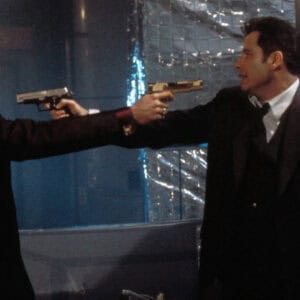

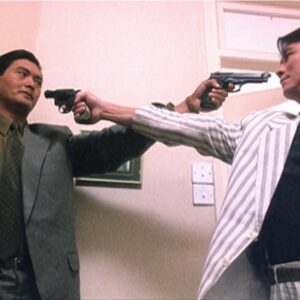
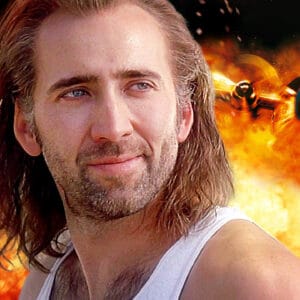
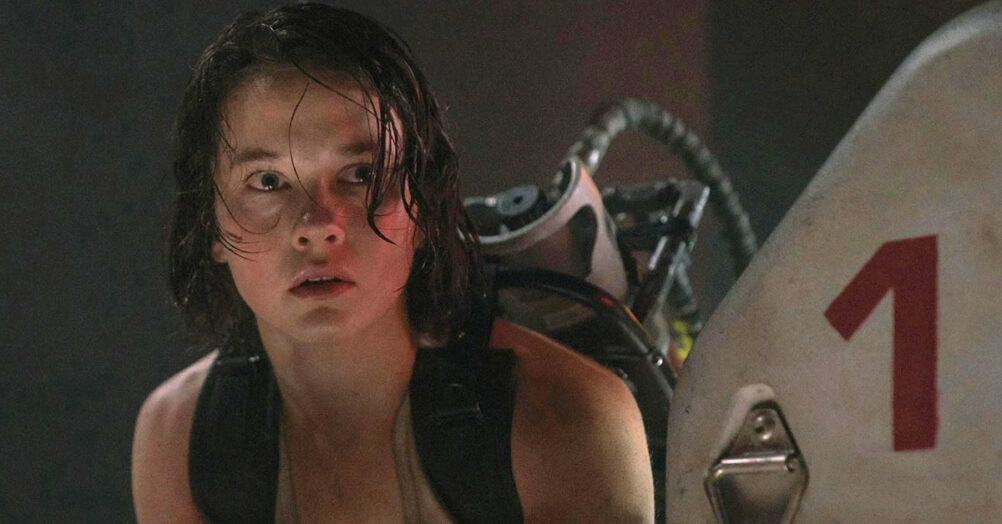


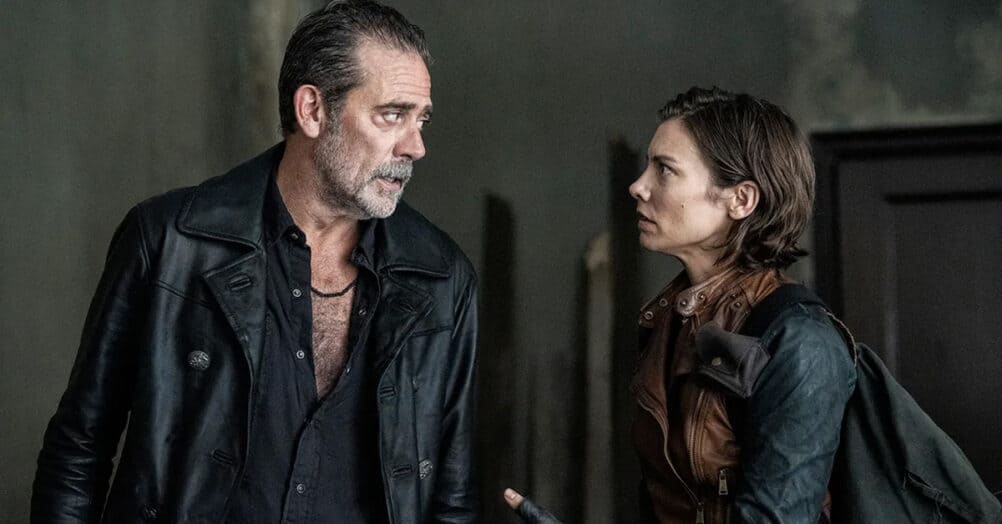
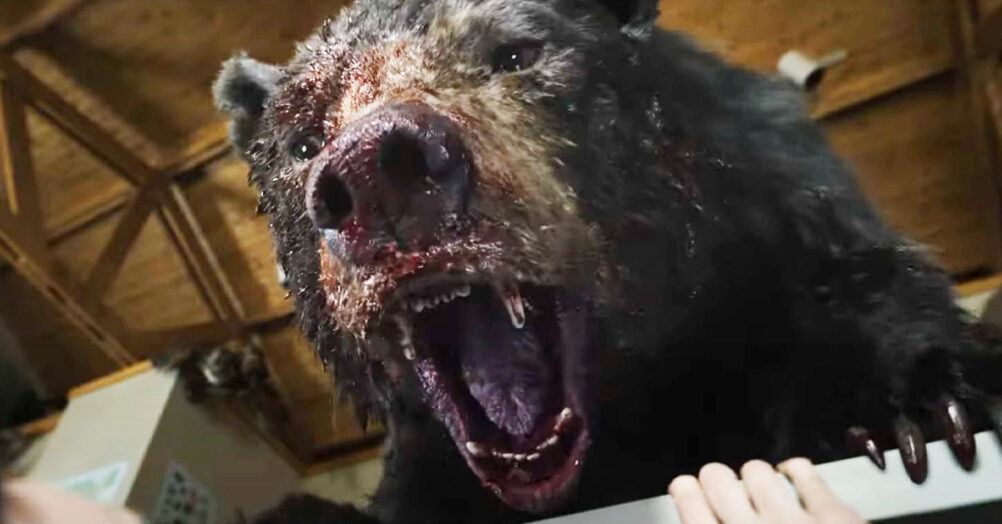




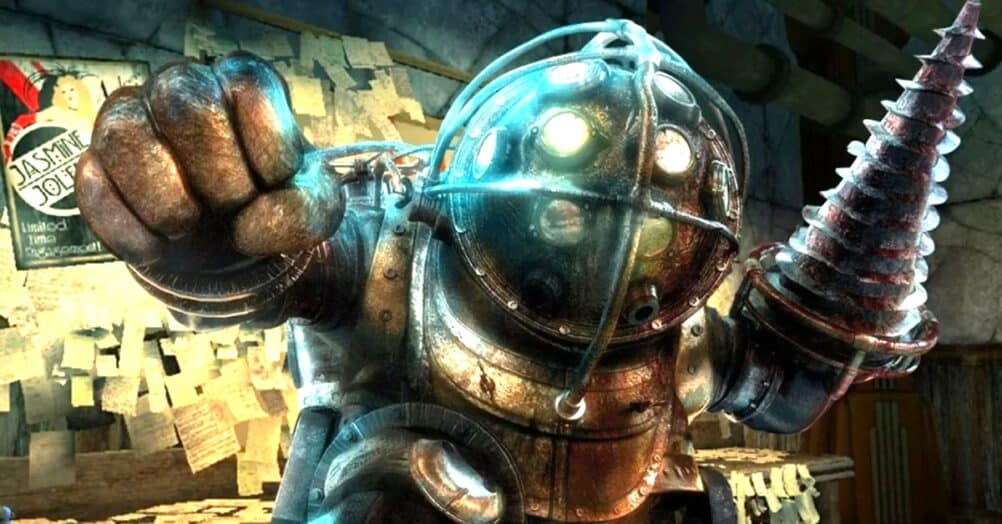
Follow the JOBLO MOVIE NETWORK
Follow us on YOUTUBE
Follow ARROW IN THE HEAD
Follow AITH on YOUTUBE